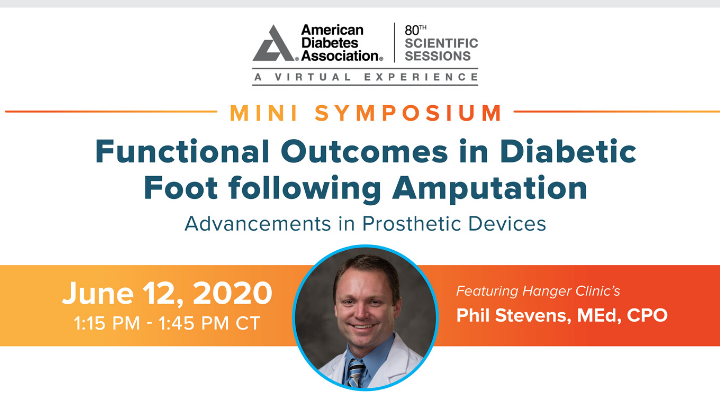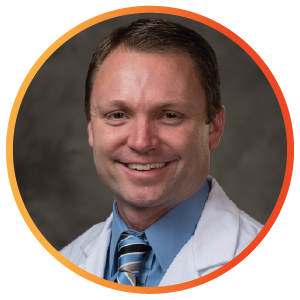American Diabetes Association 80th Scientific Sessions

Date and Time
Location
Virtual
The Scientific Sessions offers researchers and healthcare professionals the opportunity to share ideas and learn about the significant advances in diabetes research, treatment, and care. Over the course of five days, attendees will receive exclusive access to more than 2,800 original research presentations, take part in provocative and engaging exchanges with leading diabetes experts, and expand professional networks with over 12,000 attendees from around the world.
Hanger Clinic will be presenting at the conference, and we invite you to our poster presentation to hear more about our research relating to this patient population.
Mini-Symposium featuring Hanger Clinic’s Phil Stevens – June 12
Functional Outcomes in Diabetic Foot following Amputation
Theme Area: Acute and Chronic Complications
Chair: Adam E. Fleischer, DPM, MPH, FACFAS
12:45 p.m. – 1:15 p.m. High- vs. Low-Level Amputations | George T. Liu, DPM, FACFAS
1:15 p.m. – 1:45 p.m. Advancements in Prosthetic Devices | Phillip Stevens, MEd, CPO

Phil Stevens, MEd, CPO
Director, Clinical and Scientific Affairs, Hanger Clinic
Through outcomes implementation, landmark research studies and the establishment of Clinical Practice Guidelines, Phil has set national standards of care based on science and at the forefront of O&P care.